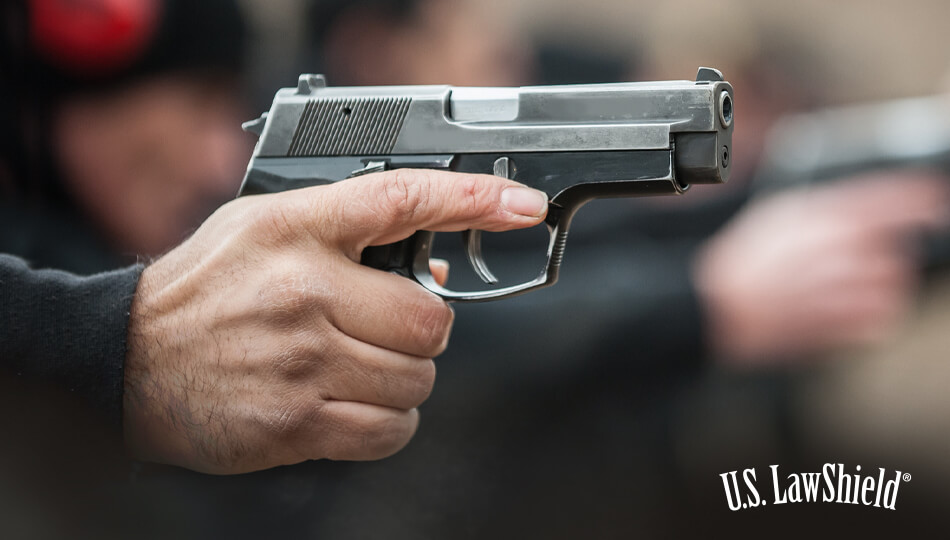
Whether you’re brand new to the world of guns or an experienced shooter, it’s likely you’re always looking for ways to be a more accurate shooter. After all, no one wants to be a bad shot, and even as your shooting improves there’s always room for improvement. Check out the information below for some tips to help you on your way to becoming a more precise shooter.
How to be an Accurate Shooter
The first thing to remember is that if it was easy to be an amazing shooter, everyone would do it. Becoming a truly skilled shot takes time, practice, and dedication. Accurate shooting is a perishable skill, meaning you have to maintain it long-term. It’s also important to remember that every shot fired counts. That means you could be creating bad habits or reinforcing good ones with your live fire—or dry fire—practice. It’s up to you. The more you shoot, the more time you invest into building skills at the range, the better you’ll be.
Top Shooting Tips for Accuracy
In the firearms industry some phrases are seen as cliches, but they remain meaningful. Perhaps one of the more common ones is, “slow is smooth, smooth is fast.” While it’s sometimes overused, it’s still accurate. This phrase can easily be applied to the need to perfect your foundational and overall skills slowly and smoothly before trying to speed up. For example, rapid-fire isn’t going to help if you don’t have the existing, slower shooting skills to back it up. There are things to remember when it comes to being an accurate shooter: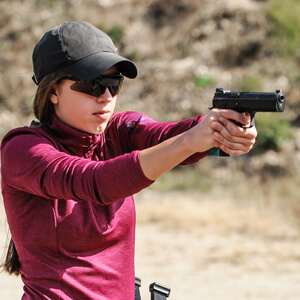
- Gun fit to your hand size matters
- Shooting stance does affect accuracy
- Thumb position and grip also affect accuracy
- Finger position on the trigger matters as does your trigger pull
- Dry fire is an excellent tool to improve shooting skills
As a dedicated shooter, take the time to do the following:
- Learn to focus on the front sight, not the target
- Find out if you’re cross-dominant (meaning left-eye dominant, but right-handed, or vice versa)
- Work on breath control while shooting
- Build solid foundational skills before moving on to more advanced work
- Try different stances and possibly thumb positions
Does the Gun Matter?
When watching a talented shooter who happens to be using a high-end gun it’s common for people to say it’s the gun, not the person behind it, producing such fantastic results. It’s true that certain guns outperform others, but the gun doesn’t make the shooter. A skilled shot can and will get stellar results out of lower-quality guns as well. Their performance with that cheaper gun might not be as impressive as with more carefully designed firearms, but it’ll still be solid. The gun being used to shoot matters because things like the fit, trigger, and overall quality can impact shooting results, but a great gun doesn’t guarantee excellent results. When it comes right down to it, it’s important to remember that guns are inanimate objects and tools only capable of doing what the person behind the trigger can do.
Enjoying this content? Find out how you can get more sent straight to your inbox.
Does the Trigger Matter?
The trigger of your gun matters whether it’s a rifle or handgun. Good triggers are described using words like “crisp,” “clean,” and “smooth” while less-than-great triggers have issues like “grit,” “stacking,” and “poor re-set.” The quality of the trigger absolutely affects how accurate shots will be with a gun. It’s only possible to work around a poorly made trigger so much; bad triggers make it difficult to get good results out of a gun and a great trigger makes it far easier (and also a pleasure).
It’s common for gun owners to state that because their gun has a double-action trigger, of course it isn’t as good. However, double-action triggers can be designed well. Regardless of the mechanism behind your firearm’s action, its trigger can and should have a smooth, consistent pull with a crisp, clean break and a good re-set (also sometimes called “return”). For the sake of clarity, keep in mind some gun owners refer to trigger pull as a trigger press and both terms are technically correct.
If the trigger in a gun is excessively poor, it can be replaced. There are myriad options on the market for aftermarket triggers for rifles, shotguns, and handguns.
Does How I Grip My Gun Matter?
In short, yes. Grip matters. A firm grip—sometimes called a “crush grip”—is necessary for accuracy. Also, if someone is gripping their handgun with more pressure on one side than the other, the negative results will show up on the target.
Aside from a crush grip being important to succeeding as a precise shot, it’s also a must to grip the handgun high, not low. Holding a handgun’s grip too far down results in poor control and is detrimental to accuracy. It can also be unsafe due to the way firearms recoil; a low grip might result in the handgun jumping or slipping from the person’s grasp during live fire.
How is Shooting a Rifle Different Than a Handgun?
Running a rifle accurately requires different skills than are used with handguns. A rifle involves things like proper shouldering, a good cheek weld, and knowing how to run a rifle scope. Some gun owners feel accurate rifle shooting is easier to accomplish than with handguns but in reality, it’s comparing apples to oranges. Whether it’s a rifle, shotgun, or handgun, they simply require different things. For example, rifle shooting positions vary quite a bit from handgun shooting stances.
Why Does it Matter if I’m an Accurate Shooter?
Gun owners are responsible for every bullet that leaves the barrel of their firearm. It doesn’t matter if they’re hunting, at the range, or fighting for their lives in a self-defense scenario. Every shot fired is ultimately their responsibility. Working on being an accurate shooter is a good idea for many reasons including:
- Being a responsible, safer shooter
- Ethical shots while hunting
- Better scores in competitions
- Making every shot count in a self-defense situation
- Having the satisfaction of improvement and success
Are Accuracy and Precision the Same Thing?
No, accuracy and precision aren’t the same. Precision rifle shooting is a good example. The goal of precision rifle is a single, ragged hole. If that single hole—made up of multiple shots fired—is dead center on the bull’s eye of the target, it’s both accurate and precise. However, if the rifle shooter’s group is still a single hole, but off to one side rather than on the bull’s eye, it’s only precise, not accurate. Similarly, a group that’s spread out on a target would be accurate, but not precise. It’s normal to get the two confused and helpful to remember the difference when discussing shooting.
Quick Tips for Accuracy
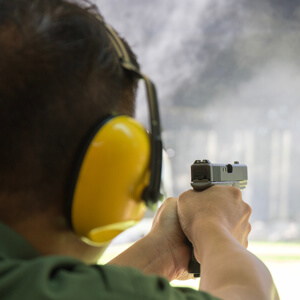 As mentioned before, dry fire is a good way to improve shooting skills without a need to go to the range. The majority of modern firearms are perfectly safe to dry fire whether they’re handguns, rifles, or shotguns. If you’re unsure, check your owner’s manual. For dry fire success, practice in a safe location and follow the four rules of gunsafety, then choose specific drills to master. One popular drill involves placing a coin or empty brass on the top of a handgun’s slide near the muzzle. Once the object is in place, work on pulling the trigger without knocking it off. The majority of competition shooters and most skilled shooters in general use dry fire practice as part of their regular training.
As mentioned before, dry fire is a good way to improve shooting skills without a need to go to the range. The majority of modern firearms are perfectly safe to dry fire whether they’re handguns, rifles, or shotguns. If you’re unsure, check your owner’s manual. For dry fire success, practice in a safe location and follow the four rules of gunsafety, then choose specific drills to master. One popular drill involves placing a coin or empty brass on the top of a handgun’s slide near the muzzle. Once the object is in place, work on pulling the trigger without knocking it off. The majority of competition shooters and most skilled shooters in general use dry fire practice as part of their regular training.
Although we’re focusing on handguns, much of this info can be applied to a rifle or shotgun as well, especially the fact that practice time is valuable. It doesn’t all have to be live fire at the range, but some of it should be. Taking it a step further, be sure live fire time doesn’t only involve training ammunition. Some live fire should be dedicated to using the hunting ammo used as a hunter or the defense rounds used for self-defense purposes. That ammunition recoils differently than training rounds making it a must to get practice in with it.
If you really want to be a more accurate, precise shooter, you’ll have to work for it. It doesn’t matter if it’s a handgun or a rifle; investing time is unavoidable to improve accuracy. Then you have to keep at it, because shooting is a perishable skill. Look at it as an excuse to go shooting more frequently, because who doesn’t love that?
Your Protection Starts Here!
The information provided in this publication is intended to provide general information to individuals and is not legal advice. The information included in this publication may not be quoted or referred to in any other publication without the prior written consent of U.S. LawShield, to be given or withheld at our discretion. The information is not a substitute for, and does not replace the advice or representation of a licensed attorney. We strive to ensure the information included in this publication is accurate and current, however, no claim is made to the accuracy of the information and we are not responsible for any consequences that may result from the use of information in this publication. The use of this publication does not create an attorney-client relationship between U.S. LawShield, any independent program attorney, and any individual.

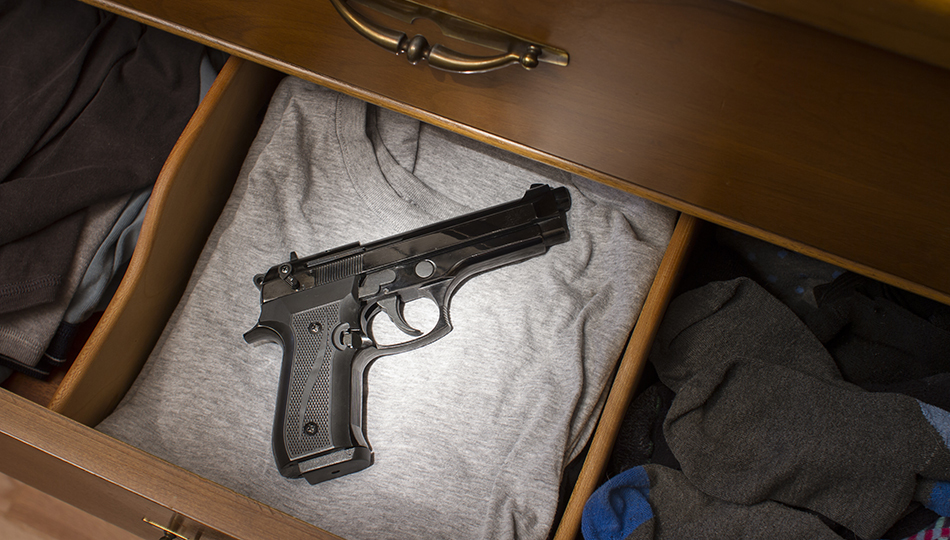
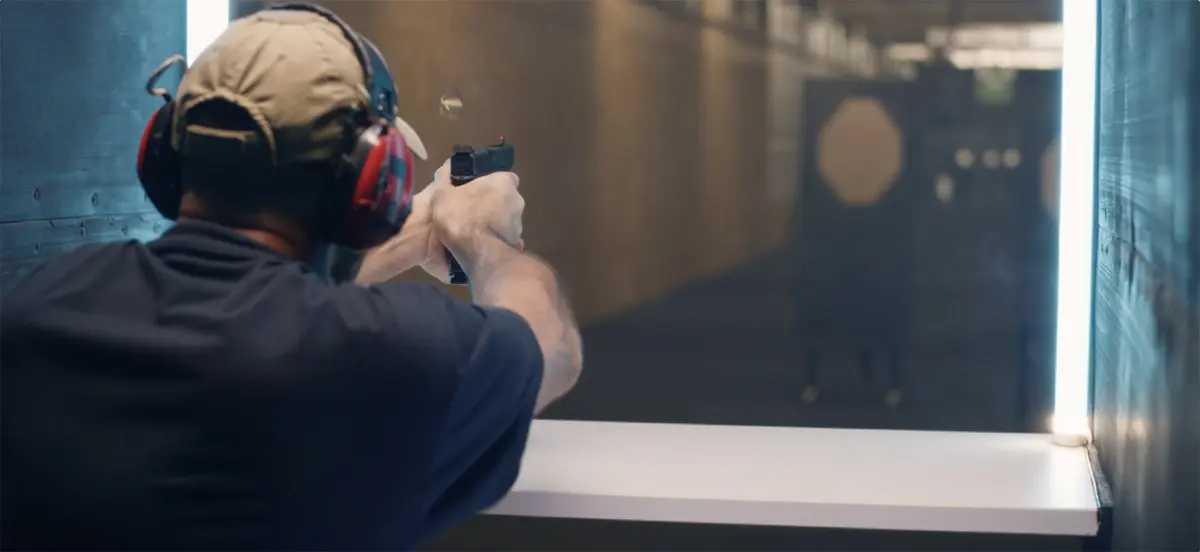


Lots of good advice.
As always this article is right to the point and covers the subject briefly but to the point. Always like your information. Just another reason I continue to be a member.
Your articles give valuable information in a neat , concise format. That you for such great presentation of facts and techniques.